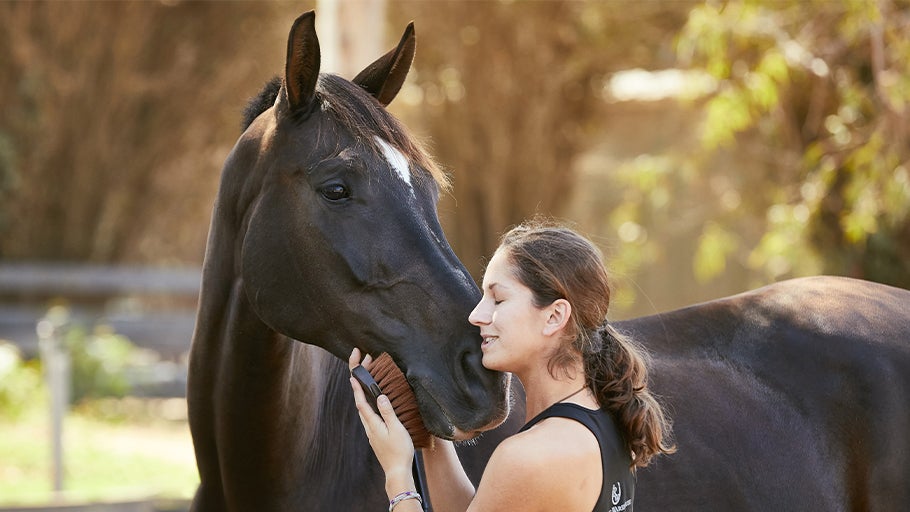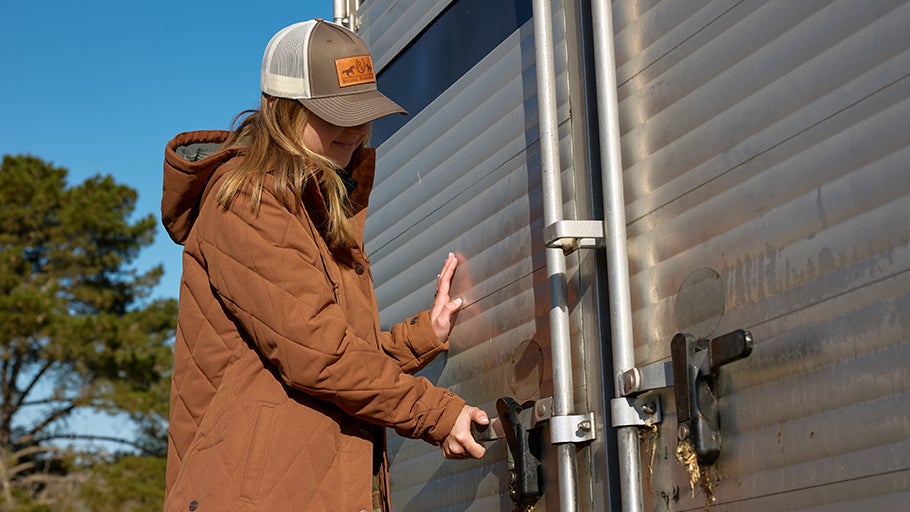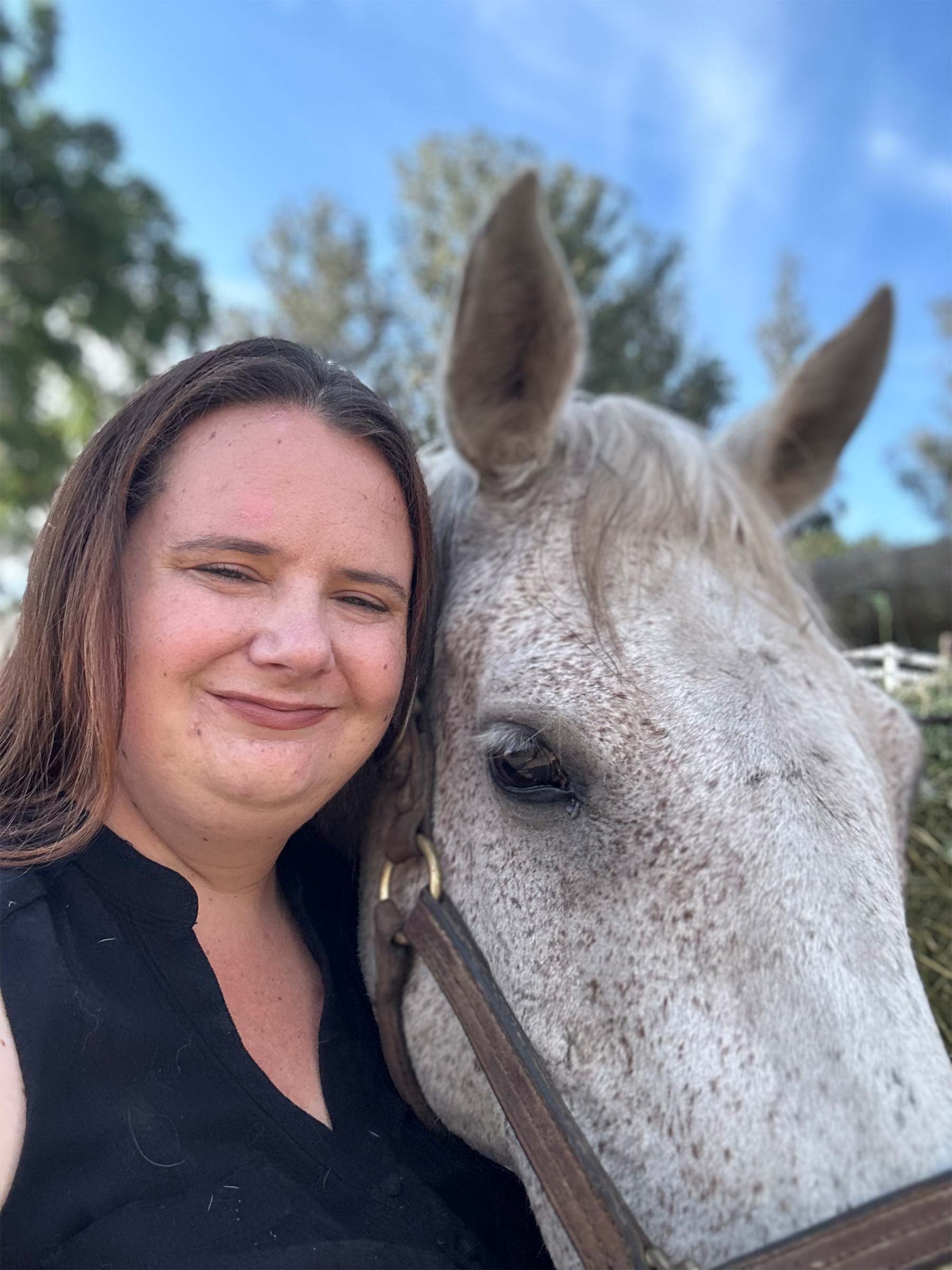
Moving Your Horse to a New Barn: Tips & Tricks
Moving. We all know it's a stressful and time-consuming endeavor—especially when your horse is involved! Whether the switch is coming because you're moving to a new city, or you and your horse's needs have changed, moving to a new barn doesn't have to be an entirely stress-inducing affair. With careful planning and preparation, it can become an exciting new adventure that you and your horse embark on together.
If you're coming up on a move with your equine companion, never fear! Riding Warehouse's team of equine experts knows a thing or two about making calm and smooth transitions with our horses. In this guide, we'll go over everything you need to know, from planning your move to day-of travel tricks and tips for helping your horse settle into their new environment, so you and your horse can make your next move as seamless as possible!
Planning Your Move
So, you've made the decision to move to a new barn. That's a huge step in and of itself! Now that the choice to move has been made, it's time to start finding your horse's next home sweet home. As you may have expected, there are a variety of factors that go into deciding which barn is the best fit for you and your horse. These include location, types of boarding services offered, riding discipline, feeding program, and more!
For some horse owners, considerations such as trail access or an arena complete with jumps may be a top priority, while for others, a facility that offers around-the-clock pasture living may be the most important. When it comes down to it, you and your equine companion's unique needs should be the ultimate deciding factors. Take some time to figure out what matters the most to you, and make these the factors you focus on when touring potential facilities.
Giving Your Old Barn Notice
Most barns require notice to be given before boarders move their horses to a new location. A notice of at least 30 days is often required, but we recommend at least giving your current barn manager a heads-up in advance once you're sure that you will be moving.
If you're moving far enough away that you will need a new health-care team for your horse, take some time to do your research and start to find a new vet, farrier, and other members of your equine care team before you move. You can avoid a lot of stress if you aren't rushing to find someone in case of emergency when you're still new to the area.
Packing and Travel Preparation
Give yourself time to pack so you can feel calm, prepared, and confident when moving day arrives. It's never fun to be second guessing whether you remembered to pack that one pair of blue polo wraps or running around looking for your spare muck rake at the last second! Though it may seem monotonous, taking a few minutes to create a packing list can help make sure you have everything accounted for when it's time to move.
Another important factor to take into consideration before moving day is determining exactly how your horse will be getting to their new home. Depending on the distance your horse will be traveling and on your comfort level with driving a trailer, it may be wise to hire a professional horse transport service to trailer your horse. Of course, you'll want to be sure to book your horse's ride as soon as you know that you will not be the one doing the driving, so you're not looking around for a ride at the last minute.
Health Considerations
If your horse is going to be due for any routine care or vaccines around the time of your move, we recommend having those done at least a couple of weeks before the big day. Not only will this ensure that your horse is current and up to date on all of their vaccinations when they arrive at their new barn, it will decrease the amount of stressful situations your horse may experience in a short amount of time. In addition to any visits from the vet, it may be helpful to have any farrier or body work done a bit in advance of moving day.
Horses can become prone to developing gastric ulcers or becoming easily stressed during travel, and some may benefit from a gastroprotectant supplement like UlcerGard prior to and during the move. We recommend consulting your current veterinarian about any concerns, or for their opinion on how to best support your horse throughout their transition to a new environment.
The Day of the Move
Just as you gave yourself plenty of time to gather your things together for the move, giving yourself plenty of time on moving day can really help bring stress levels down! If you are able, plan out your day so you can make an unrushed move from beginning to end.
Arriving At Your New Barn
If time allows, make an effort to familiarize yourself with your horse's new home before you pick them up (or before they arrive with the transporter). Take a look around the area to ensure waterers are full and there aren't any hazards such as rogue nails. If you will be trailering your horse yourself and won't have time to stop by to ensure everything is ready, be sure to coordinate with the manager ahead of time to confirm when everything will be set for your horse to arrive, and to find out about any arrival protocols so there are no surprises when you and your horse drive up.
Once your horse has been unloaded from the trailer, allow them a moment to take in their new surroundings, or even take them for a walk. After they've had a little bit of time to be out of the trailer and have had a chance to look around, allow them to explore their stall or pen. Having some feed available in their new space is a great way to help your horse settle in as they get used to their surroundings. Once your horse appears to be comfortable, give them some time to relax as you unload all of your tack and supplies and get yourself organized too.
Quarantine
Boarding facilities often have biosecurity or quarantine measures in place upon the arrival of a new horse. Be sure to check with your new barn manager before you arrive to learn about the facility's protocols so you can be prepared, especially if any vaccine records or other health documentation is required. These practices are typically put in place to help prevent the spread of diseases among horses when new equines arrive at the facility. If your horse tends to get nervous when they are on their own, look into the possibility of having them spend their quarantine in an area where they can see, or at least smell or hear other horses to help ease their nerves.
Acclimating to Your New Barn
The next few hours and days that pass as you and your horse get acquainted with your new surroundings are a great opportunity to spend some extra quality time together. Remember to allow your horse the time they need to get used to their environment. Just as it takes us humans a little while to get acclimated to a new living space, the same goes for our horses. Spend some additional time simply grooming your horse and hand-walking them around the facility, and if there's a place to let them graze, let them have a little snack.
Feeding
Even if your horse's feeding protocol remains the same, we recommend bringing along a few meals' worth of hay or feed that your horse is already accustomed to so they have familiar food as they make the transition to a new barn. After a gradual introduction to the new facility's hay, your horse's gastrointestinal tract (and taste buds) will become more accustomed to it. Sensitive horses may turn up their nose at strange feed in unfamiliar surroundings, so having something you know they'll eat can help make the transition easier for them. Some horses may even need some extra encouragement to keep up their water intake. Offering electrolytes as they get used to their new surroundings can help them stay hydrated.
Keep an eye on your horse's feed and water intake as much as possible to ensure they are eating and drinking normally, and be sure to contact your veterinarian if you notice anything out of the ordinary. It's always helpful to know what's normal for your horse, so you can catch any potential issues before they become a larger problem.
Making New Friends
If your horse will be going out in pasture with other horses, be sure to consult with your new barn manager about your horse's personality and which group of horses they will get along with best. Typically, horses will be grouped together based on their gender, temperament, age, and other factors. If at all possible, before turning your horse out in a new field, take some time to hand-walk them around the perimeter so they can become accustomed to their new boundaries and locate important things like the water trough.
As you watch your horse interact with their new pasture-mates for the first time, it's important to remember that when making new friends, there is often quite a lot of sniffing and even squealing between the horses. This is their way of saying hello and figuring out the new hierarchy within the herd. Though it's definitely good practice to keep an eye on the horses as they make their introductions, keep in mind that they may show a lot of outward curiosity and be very vocal!
Routine
Keeping to a routine is another great way to help your horse settle in their new surroundings, and it can help them start to know what to expect on a day-to-day basis. If you are able, try to stick to a similar schedule as your previous barn in terms of when you ride and groom your horse. If feeding is something you are responsible for as well, try and keep that schedule consistent. The more you can stick to a routine for your horse, the less stressful the transition period will be for them.
Closing Thoughts
With careful planning, moving your horse to a new barn can become an exciting adventure. Taking the time to select a new barn that fits their needs and learning what to expect when you arrive can make all the difference between having a stressful moving day and a smooth transition.
We hope that this guide has made the prospect of making a move with your horse seem less daunting. If you have any further questions about anything we've covered, our customer service team is always happy to help. You can reach them at info@ridingwarehouse.com or 1-800-620-9145. Happy moving (and of course, happy riding)!
Related Articles







